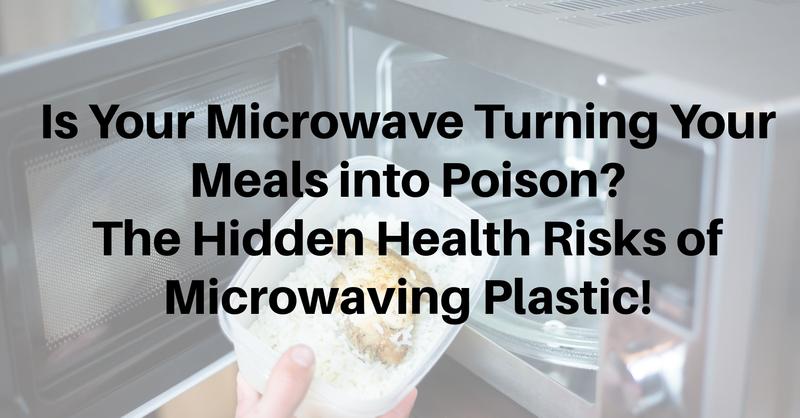Is Your Microwave Turning Your Meals into Poison? The Hidden Health Risks of Microwaving Plastic!
Is Your Microwave Turning Your Meals into Poison? The Hidden Health Risks of Microwaving Plastic!
In a world where convenience often takes precedence over health, a public service announcement sent shockwaves through households across the nation. It was a revelation that left many questioning their everyday habits, especially those who indulged in the convenience of prepared meal kit deliveries and the trusty microwave. This announcement was more than just a wake-up call; it was a dire warning of the unintended consequences of our modern lifestyle.
The catalyst for this revelation was a groundbreaking study conducted by the University of Nebraska, led by the diligent researcher, Kazi Albab Hussain. It all began in 2021 when Hussain and his team embarked on a quest to uncover the truth behind a seemingly innocuous act—microwaving plastic.
The study's focus was on FDA-approved plastic baby bottles, a staple in many households, especially those with young children. Hussain and his team sought to simulate real-life scenarios, filling the plastic bottles with water and other liquids representing baby food. The bottles were then subjected to three minutes of microwaving—the standard practice for busy parents and individuals seeking a quick meal.
The results were nothing short of alarming. The study revealed that, during the microwaving process, these seemingly harmless plastic containers were releasing microplastics into the food and liquid contents. It was estimated that over two billion nanoplastics and four million microplastics per square centimeter were being unleashed into the meal.
Even more disconcerting was the uncertainty surrounding the impact of these synthetic materials on the human body. "Even this one study should be a wake-up call—not just to new parents but to the FDA," Judith Enck, a former EPA administrator, and president of the advocacy group Beyond Plastics, declared.
Hussain, who had become a new father during the course of the study, shared his own concern: "For my baby, I was unable to completely avoid the use of plastic. But I was able to avoid those scenarios which were causing more of the release of micro- and nanoplastics. People also deserve to know those, and they should choose wisely."
Microplastics, minuscule plastic particles found in the most remote corners of our planet, were now making their way into our homes and bodies. A study reported that 77% of people tested had microplastics in their blood, raising an alarming red flag. What's more, some microplastics were found to be composed of PFAS, commonly known as "forever chemicals," notorious for their slow degradation. Government estimates suggested that up to 97% of Americans had PFAS in their blood.
The health impact of microplastics and PFAS remained a subject of ongoing research. However, the experts shared a common-sense belief that these substances couldn't be benign. Hussain emphasized that the toxicity of micro- and nanoplastics appeared to be directly linked to the level of exposure. To illustrate this point, the researchers conducted experiments exposing kidney cells to the microplastics released during their bottle-microwaving experiment. The results were chilling—approximately 75% of the cells were killed, hinting at a potential link between microplastics and kidney damage.
In light of these revelations, the question arose: How could individuals avoid these harmful microplastics? The answer was simple: don't microwave plastics. Hussain remained hopeful for a future where products would proudly display labels declaring them "microplastics-free" or "nanoplastics-free." In the meantime, he recommended alternatives like edible plastic-free food wraps, compostable coffee pods and tea bags, and glass baby bottles, all of which offered the same convenience without the insidious plastic infiltrators.
But there was another essential message in this public service announcement—a reminder that convenience should never come at the cost of health. For those who frequently relied on the microwave to prepare their children's foods or their meal kit deliveries, there was another side effect to consider: the loss of nutrition. Microwave ovens, while quick and convenient, often resulted in the degradation of essential nutrients in food.
In the wake of this eye-opening revelation, it became clear that change was not only necessary but imperative. It was a wake-up call for individuals, parents, and regulatory agencies alike. The microwave's "just pop it in" mentality had unforeseen consequences, and it was high time for a shift in our habits—a return to mindful and health-conscious choices, both for our own well-being and the planet's.
Be the first to post a message!
